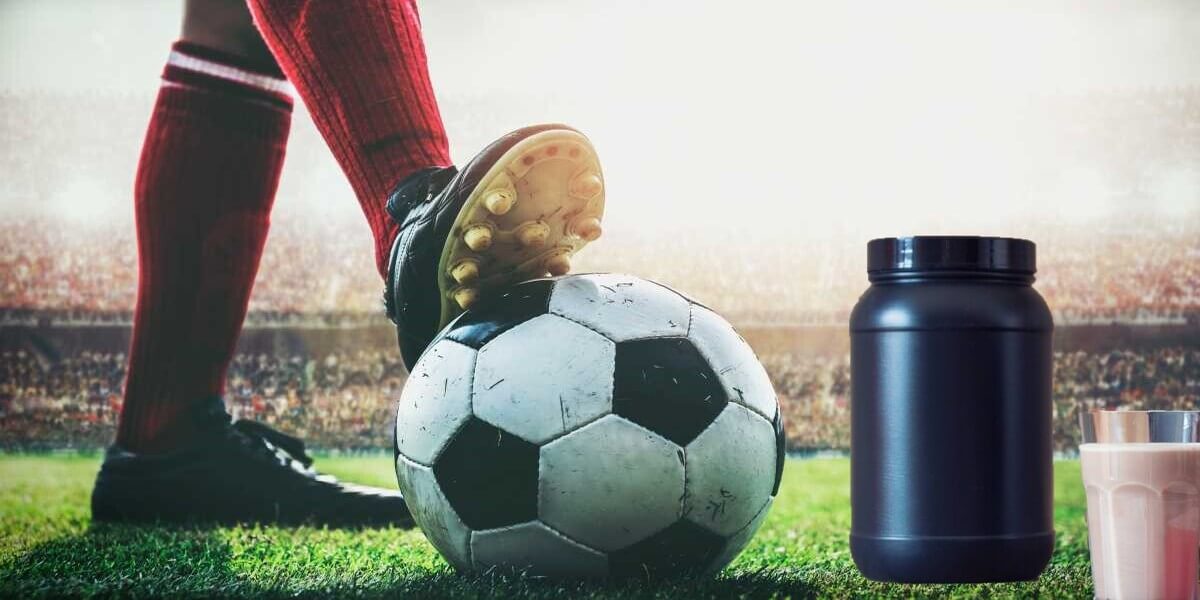SHOULD FOOTBALL PLAYERS TAKE SPORTS SUPPLEMENTS?
Nowadays, to help meet the nutritional demands related to sport, “ergogenic nutritional aids” or also known as “nutritional supplements” are becoming more and more prominent.

What is a food supplement?
A supplement is defined as a product created for consumption that contains a ‘dietary ingredient’ designed to add additional nutritional value to the diet (FDA, 2014; Finley et al., 2013). As the definition indicates, these products may represent a complement to a healthy diet but in no way replace it.

Nutritional strategies
Nutritional strategies aimed at football players should focus on “FOOD FIRST” and supplements AFTER. Our players must understand the order of priorities in order to direct their efforts towards constant improvement of their eating habits and also have the knowledge to be critical of the benefits marketed by these products.

IS THIS NUTRITIONAL AID REALLY NECESSARY?
In most cases NO, a varied and balanced diet provides all the nutrients necessary to support adequate sports performance. This, together with good hydration, should be the nutritional foundation.

There are exceptions where supplements can be helpful to correct or prevent nutrient deficiencies, provide energy and nutrients in an exercise session, support training adaptations, improve match day performance, maximise recovery, among others.

In this context, the need for its implementation must be defined by qualified personnel in the area and will depend on multiple factors related to the specific situation of the athlete. In this case, its indication will specify the time and purpose of its use.
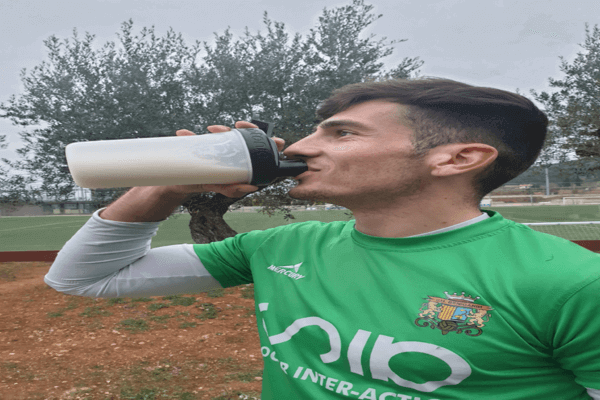
Most people who take such products without advice are looking to increase their athletic performance; what they never think about is that, if they consume an inappropriate product, at the wrong dosage or of dubious origin, not only will it not improve their physical work, but it can be dangerous and have negative consequences for both performance (decrease) and health (alteration of the function of an organ or system).

HOW TO SELECT A NUTRITIONAL SUPPLEMENT?
The sports supplement industry is a growing business with thousands of commercially available supplements claiming to improve muscle strength, power, speed and endurance as well as prevent illness and injury.

Nutritional supplements for people who do sport are aimed at a specific population group that may have different nutritional needs depending on numerous factors (intensity and duration of exercise, sporting discipline, time of the season, age, physical fitness, external environment, etc.). Its purpose is to contribute to meeting the specific nutritional requirements of these people, both to maintain a good state of health and to improve and maximise their sporting performance.
In order to select the right supplement, the following questions need to be answered:

1. What population is it designed for?
Taking into account the characteristics of the population for which it was created will allow us to identify whether it is adapted to the needs of the individual for whom the supplement is intended.
2. What are its components?
This involves investigating ALL the ingredients reflected in the nutrition labelling and their effect on health.
3. Is it a safe supplement?
Products MUST be of the highest safety and quality, and of course, free of any substance banned in sport. The World Anti-Doping Agency (WADA) publishes an annual list of substances banned in the world of sport on its website.
In terms of quality, the presence of certifications and quality seals from companies outside the brand, generate confidence by undergoing regular checks to ensure its composition.

The most recognised certifications and seals are listed below:
- Certified for Sport (NSF International’s)
- Informed Sport e Informed Choice
- Certificaciones del BSCG (Banned Substances Control Group)
- Certified Drug Free®
- Certified Quality™
- Cologne List®
- BRC Global Standard (Global Standard for Food Safety)
- IFS Food (International Food Standard)
- Normas ISO (International Organization for Standardization)
- FSSC 22000 (Food Safety System Certification 22000)
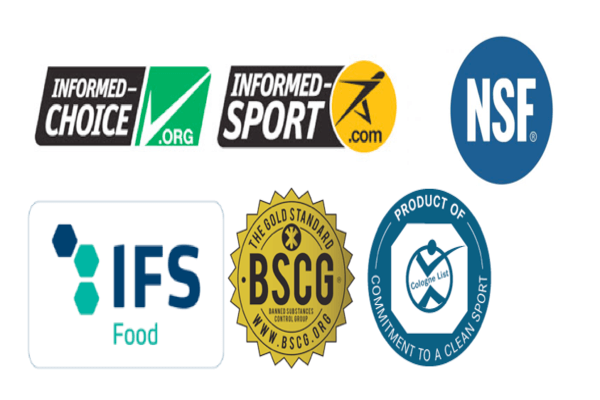
Another resource available are the lists or alerts generated by competent bodies on sports supplements:
– Alerts from AEPSAD (Spanish Agency for Health Protection in Sport).
– List of products from the European Specialist Sports Nutrition Alliance (ESSNA) (Consult their website).
– FDA Alerts
4. What scientific evidence supports their use?
Some of these products are supported by scientific evidence as effective and safe; for others, the scientific evidence shows that they are clearly ineffective or even harmful, and sometimes there are no studies or if there are studies they are inconclusive.
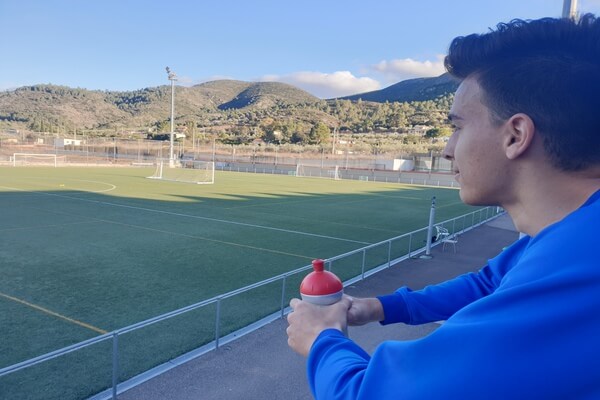
NUTRITIONAL SUPPLEMENTS WITH PROVEN SCIENTIFIC EVIDENCE IN FOOTBALL
| CAFFEÍNE | ü Caffeine intake 30-60 min before a match can improve cognitive, physical and technical elements of performance. ü Ergogenic effects are achieved with 2-6 mg/kg MC in capsule, liquid or gel form. ü FOOD: Pre-workout caffeine intake can easily be achieved by ingesting coffee with breakfast. |
| CREATIN | Creatine can enhance performance in repeated sprints during a match, promote post-exercise muscle glycogen resynthesis and also increase training-induced gains in lean mass, strength and power. ü To achieve ergogenic effects, players can start with a five-day loading dose (4 x 5 g per day) followed by a daily maintenance dose (e.g. 3-5 g). ü Alternatively, a more relevant strategy may be to consume 3 g daily although it is notable that longer periods (e.g. 30 days) are required to build up muscle creatine stores. |
| WHEY PROTEIN | Post-match and post-workout consumption of 20-30g of whey protein can induce maximal rates of muscle protein synthesis, thus promoting recovery and adaptation to training. To promote nocturnal recovery, players can consume 30-40 g of casein protein before bedtime. |
| NITRATE | ü Pre-match nitrate supplementation (especially using an intense loading dose of 30 mmol in 36 h) can improve performance in repeated sprints. ü FOOD: This can be achieved by consuming beetroot juice concentrate on the day before the match as well as in the hours before the game. |
| VITAMIN D | ü Daily intake of 5,000 IU of vitamin D during the winter months can restore any seasonal vitamin D depletion to estimated sufficient levels, thereby promoting immune and bone function and potentially improving adaptations to training through modulation of muscle protein synthesis. |
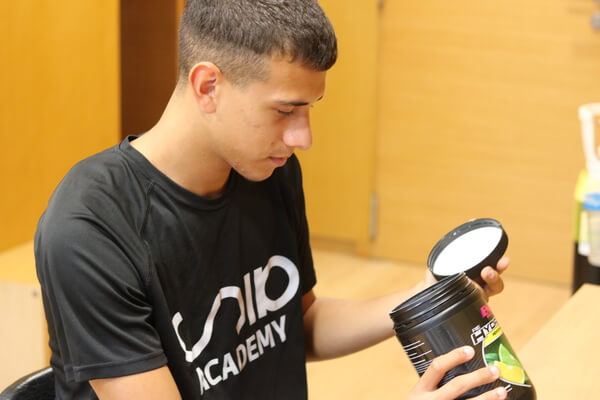
Recommendation
ü Supplementation should not be administered as a one-size-fits-all strategy, as many players are training for different objectives (e.g., body composition goals, injury rehabilitation, etc.) and have different training loads.
ü The need for supplementation should be determined by the health care team and initiated during training or in simulated games (to assess any potential negative side effects) before implementation during competition.
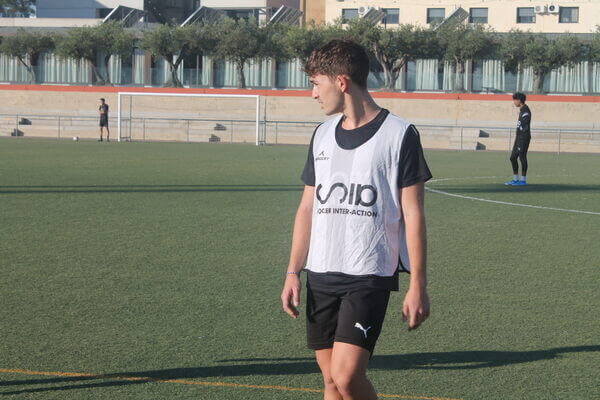
Conclusions
ü It is essential to create awareness in our players of the real scope of supplementation, in order to ensure proper interpretation of advertising elements, to avoid dependence on these products or distortion of their use.
ü There is no unifying seal that identifies all quality supplements. This makes it difficult and difficult to find a good product, which is why a specialist in the area should always prescribe them.
AutHor: Mariela Ramirez
Dietitian Nutricionist



